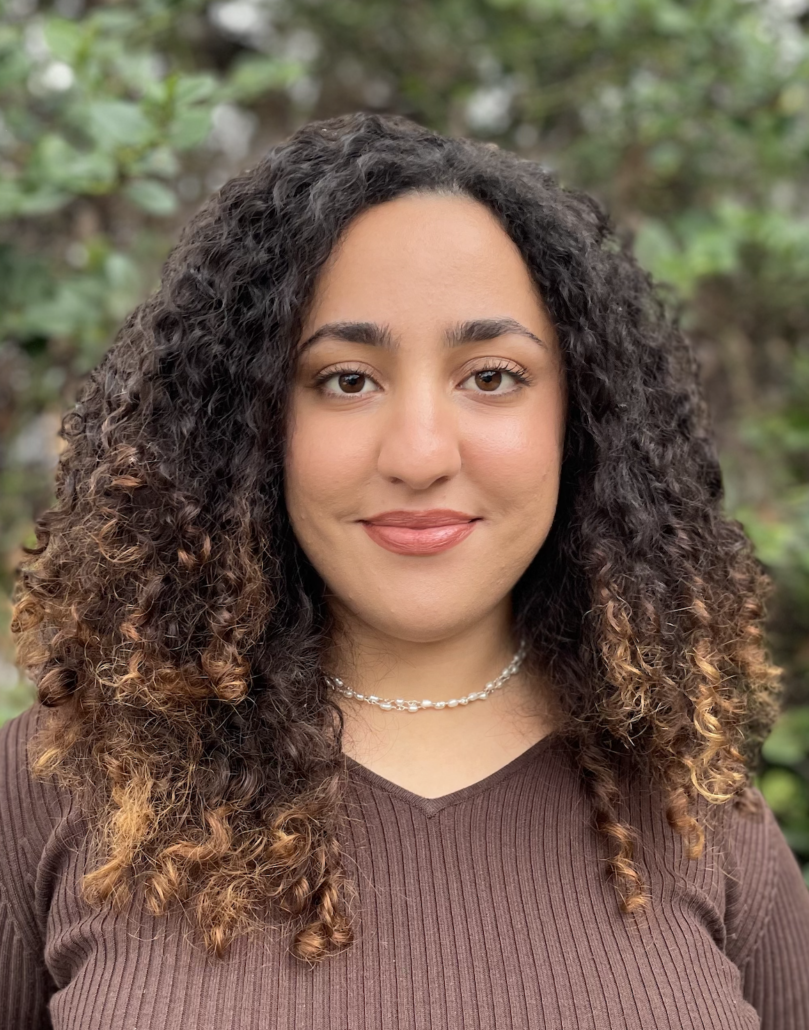Interview with Activist-in-Residence Narges Zagub

With a commitment to “turn the university inside out” to undertake power-shifting scholarship and pedagogy focused on social change, the UCLA Center for the Study of Women|Barbra Streisand Center is pleased to host Narges Zagub as our first Activist-in-Residence.
Narges is the product of an immigrant family from Benghazi, Libya. Her background as a North African, Muslim, and queer person has given them a unique lens on their relationship to the world. As a facilitator, movement worker, abolitionist and holder of change, Narges’ purpose is to move towards liberation. Grounded in the truth that change is the only constant, Narges guides community members, educators, and organizers to tap into the wisdom already within them with the goal of embodying a restorative and relationship-centered way of being. In her free time, Narges enjoys spending time with her loved ones, hiking, and reading.
We interviewed Narges about her work in activism, projects she’s working on, and hopes for the program.
Can you share a little bit about your journey and background in activism? How have your experiences shaped your activism?
My passion for organizing and commitment to social change was solidified during my time as a UCLA student in the Anthropology department. I knew that my time as a student would have been devalued had I not spent my time outside of the classroom deeply challenging these very systems. As a committed member of the Student Labor Advocacy Project at UCLA, I had the pleasure of working with peers of mine who are also committed to this vision of collective liberation. I was reminded everyday the interconnectedness of all of these systems of oppression, and how none of us are free until all of us are free.
What are you most excited to do as an Activist-in-Residence? How do you envision the integration of activism and scholarship at UCLA?
This residency excites me because I desire to deepen my organizing capacity and skills so as to stay committed to my vision for collective liberation from all of the oppressive systems that we are so intertwined in. I hope to connect with student organizations and offer support as they are navigating challenging times and I hope to connect with professors and scholar-activists on campus to deepen the relationship between my activism and scholarship.
What projects or causes are you currently working on?
Today, I spend most of my days facilitating trainings on Restorative Justice, Racial Justice, and Equity. It is in this work that I am reminded of the foundation of all meaningful and successful social change: strong relationships. Through the practice of Restorative Justice, I commit to centering relationships both as an everyday practice and in conflict. I know that another world is possible, and that by building relationships, we are able to build resilience and move towards liberation. On the organizing front, my commitment and organizing around Palestinian liberation has taken precedence in recent months.
How can members of the UCLA community get involved in activism/integrate activism into their scholarship?
The best way for members of the UCLA community to get involved in activism would be to find organizations on campus who organize around issues that you are passionate about. Talk to your community, go to events (alone or with friends!), and find the intersections between what you care about and what is going on on campus.

